D. Belomestny
UVIP: Model-Free Approach to Evaluate Reinforcement Learning Algorithms
Jun 03, 2021
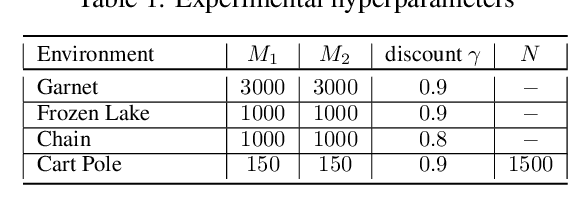

Abstract:Policy evaluation is an important instrument for the comparison of different algorithms in Reinforcement Learning (RL). Yet even a precise knowledge of the value function $V^{\pi}$ corresponding to a policy $\pi$ does not provide reliable information on how far is the policy $\pi$ from the optimal one. We present a novel model-free upper value iteration procedure $({\sf UVIP})$ that allows us to estimate the suboptimality gap $V^{\star}(x) - V^{\pi}(x)$ from above and to construct confidence intervals for $V^\star$. Our approach relies on upper bounds to the solution of the Bellman optimality equation via martingale approach. We provide theoretical guarantees for ${\sf UVIP}$ under general assumptions and illustrate its performance on a number of benchmark RL problems.
Variance reduction for Markov chains with application to MCMC
Oct 08, 2019


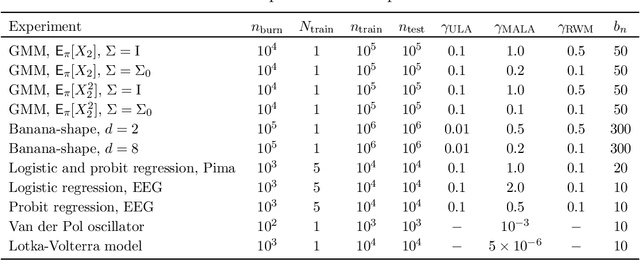
Abstract:In this paper we propose a novel variance reduction approach for additive functionals of Markov chains based on minimization of an estimate for the asymptotic variance of these functionals over suitable classes of control variates. A distinctive feature of the proposed approach is its ability to significantly reduce the overall finite sample variance. This feature is theoretically demonstrated by means of a deep non asymptotic analysis of a variance reduced functional as well as by a thorough simulation study. In particular we apply our method to various MCMC Bayesian estimation problems where it favourably compares to the existing variance reduction approaches.
Variance reduction for MCMC methods via martingale representations
Mar 18, 2019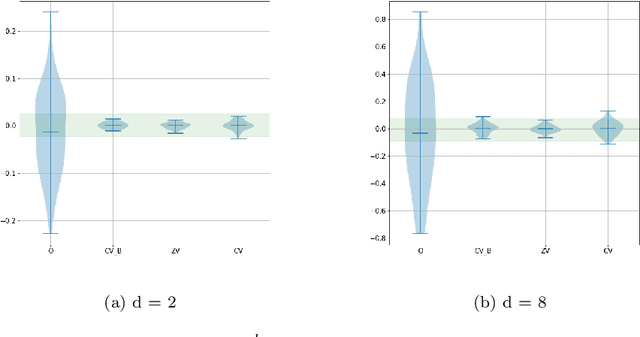
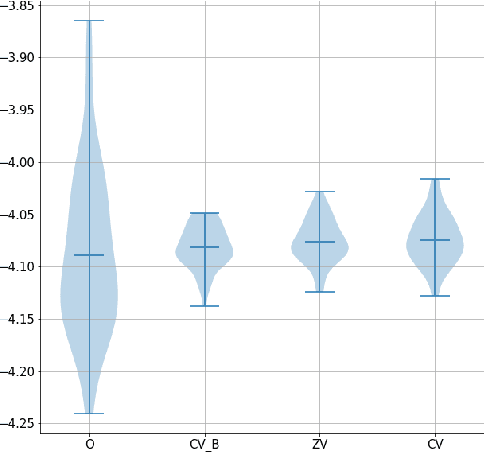
Abstract:In this paper we propose an efficient variance reduction approach for MCMC algorithms relying on a novel discrete time martingale representation for Markov chains. Our approach is fully non-asymptotic and does not require any type of ergodicity or special product structure of the underlying density. By rigorously analyzing the convergence of the proposed algorithm, we show that it's complexity is indeed significantly smaller than one of the original MCMC algorithm. The numerical performance of the new method is illustrated in the case of Gaussian mixtures and binary regression.
Variance reduction via empirical variance minimization: convergence and complexity
Apr 02, 2018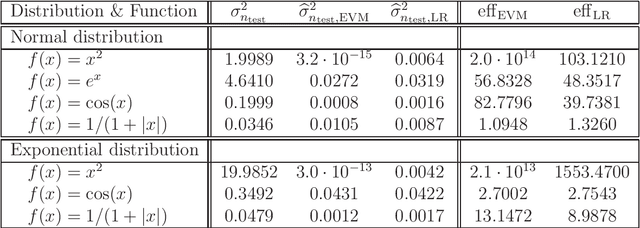
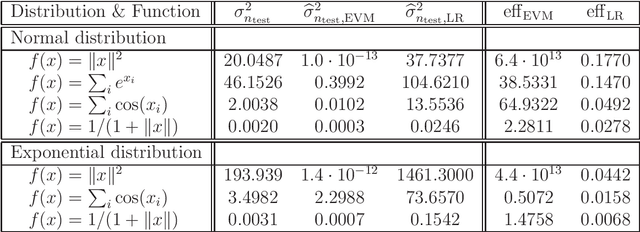


Abstract:In this paper we propose and study a generic variance reduction approach. The proposed method is based on minimization of the empirical variance over a suitable class of zero mean control functionals. We discuss several possibilities of constructing zero mean control functionals and present the corresponding convergence analysis. Finally, a simulation study showing the numerical efficiency of the proposed approach is presented.
 Add to Chrome
Add to Chrome Add to Firefox
Add to Firefox Add to Edge
Add to Edge